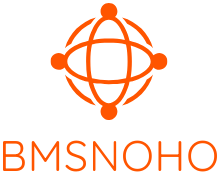Table of Contents
ToggleEver found yourself staring at a pile of laundry, promising yourself you’ll tackle it tomorrow? We’ve all been there. Habit engagement isn’t just a fancy term; it’s the secret sauce to transforming mundane chores into powerful routines that stick. Imagine turning procrastination into productivity with a sprinkle of fun and a dash of motivation.
Overview of Habit Engagement
Habit engagement refers to actively participating in routine activities with a mindset focused on enjoyment and motivation. Transforming mundane tasks, such as laundry, into pleasurable activities significantly impacts overall productivity. Incorporating elements of fun, like listening to music or using a timer for challenges, enhances motivation.
Understanding the mechanics of habit engagement is crucial. Habits form through repetition, making it essential to create an inviting environment for these behaviors. They thrive in situations that reinforce positive experiences. By associating chores with rewarding outcomes, individuals can create a sustainable motivation loop.
Utilizing frameworks like the habit loop can guide individuals through this process. This model consists of cue, routine, and reward. Identifying cues, such as setting a specific time for chores, prompts action. Establishing a routine through repeated practice solidifies habits, while rewarding oneself after completing tasks builds a positive association.
Encouraging accountability also plays a significant role in habit engagement. Involving friends or family members supports individuals in maintaining progress. Social encouragement can provide necessary motivation, turning solo endeavors into collaborative efforts.
Recognizing personal motivations is vital for enhancing habit engagement. Identifying individual reasons for completing tasks offers clarity on priorities. This clarity fosters commitment, ultimately leading to greater consistency and less procrastination in routine activities.
Importance of Habit Engagement

Habit engagement plays a critical role in transforming mundane tasks into enjoyable routines. By focusing on fun and motivation, individuals can enhance their daily productivity and well-being.
Benefits for Personal Development
Personal development flourishes with habit engagement. Individuals experience enhanced skills as they consistently practice new habits in enjoyable ways. Improved self-discipline arises through routine participation, leading to greater resilience against procrastination. Confidence builds as small achievements accumulate, reinforcing a sense of accomplishment. Engaging in pleasurable activities encourages continuous learning, providing opportunities to develop new interests and talents.
Effects on Productivity
Productivity significantly increases with a strong habit engagement strategy. Individuals become more efficient when they incorporate elements of enjoyment into tasks. Fun activities, such as listening to favorite music while working, can make chores less daunting. Studies show that utilizing timers for challenges can lead to a focused work environment, elevating task completion rates. Collaboration with friends or family during various chores fosters a sense of accountability, further boosting motivation and the likelihood of finishing tasks promptly.
Strategies for Enhancing Habit Engagement
Enhancing habit engagement requires intentional strategies that foster commitment and motivate individuals to stay on track.
Setting Clear Goals
Clear goals act as roadmaps for habit engagement. Specific objectives provide direction, making it easier to focus efforts. Individuals should define what they want to achieve, setting both short-term and long-term targets. Using the SMART criteria—specific, measurable, achievable, relevant, and time-bound—can sharpen these goals. For instance, aiming to complete laundry twice a week instead of just “doing laundry” creates clarity. Writing down goals increases accountability. This visibility reinforces commitment by reminding individuals of their intentions.
Tracking Progress
Tracking progress is essential for maintaining habit engagement. Regularly monitoring achievements helps visualize growth and keeps individuals motivated. Tools such as journals, apps, or charts can simplify this process. Each completed task should be recorded to create a sense of accomplishment. Celebrating small milestones encourages continued effort. Reflecting on patterns can also unveil areas needing adjustment. Feedback from self-assessment fosters improvement, ensuring that the journey toward the goal remains engaging and productive.
Challenges in Habit Engagement
Habit engagement faces several challenges that can hinder personal growth and productivity. Identifying these obstacles allows individuals to strategize effectively.
Common Obstacles
Procrastination remains a top challenge, often stemming from feelings of overwhelm. Lack of enjoyment in routine tasks can lead to disengagement. Unexpected events frequently disrupt established habits, requiring quick adjustments. Time constraints often limit opportunities to engage meaningfully with tasks. Moreover, unrealistic expectations create stress and diminish motivation, making it harder to retain consistency in habit engagement.
Overcoming Resistance
Resistance often arises from fear of failure or discomfort in new routines. Starting small can alleviate this fear, enabling gradual adjustments to change. Emphasizing the benefits of engaging habits can shift focus from anxiety to motivation, sparking enthusiasm. Building a supportive environment encourages accountability and collaboration, reducing feelings of isolation. Utilizing tools like reminders or habit-tracking apps can reinforce consistency, making it easier to maintain focus. Celebrating small victories fuels momentum and counters resistance, creating an upward spiral toward sustained habit engagement.
Embracing habit engagement can transform mundane tasks into enjoyable routines. By incorporating fun elements and social support individuals can significantly enhance their productivity. The habit loop framework serves as a valuable tool in establishing effective habits that align with personal motivations.
Recognizing and overcoming challenges is essential for maintaining momentum. Small achievements build confidence and encourage continuous learning. Setting clear goals and tracking progress not only sharpens focus but also reinforces accountability.
Ultimately, habit engagement fosters personal growth and efficiency. By making tasks more pleasurable and collaborative individuals can turn procrastination into a powerful force for productivity.







